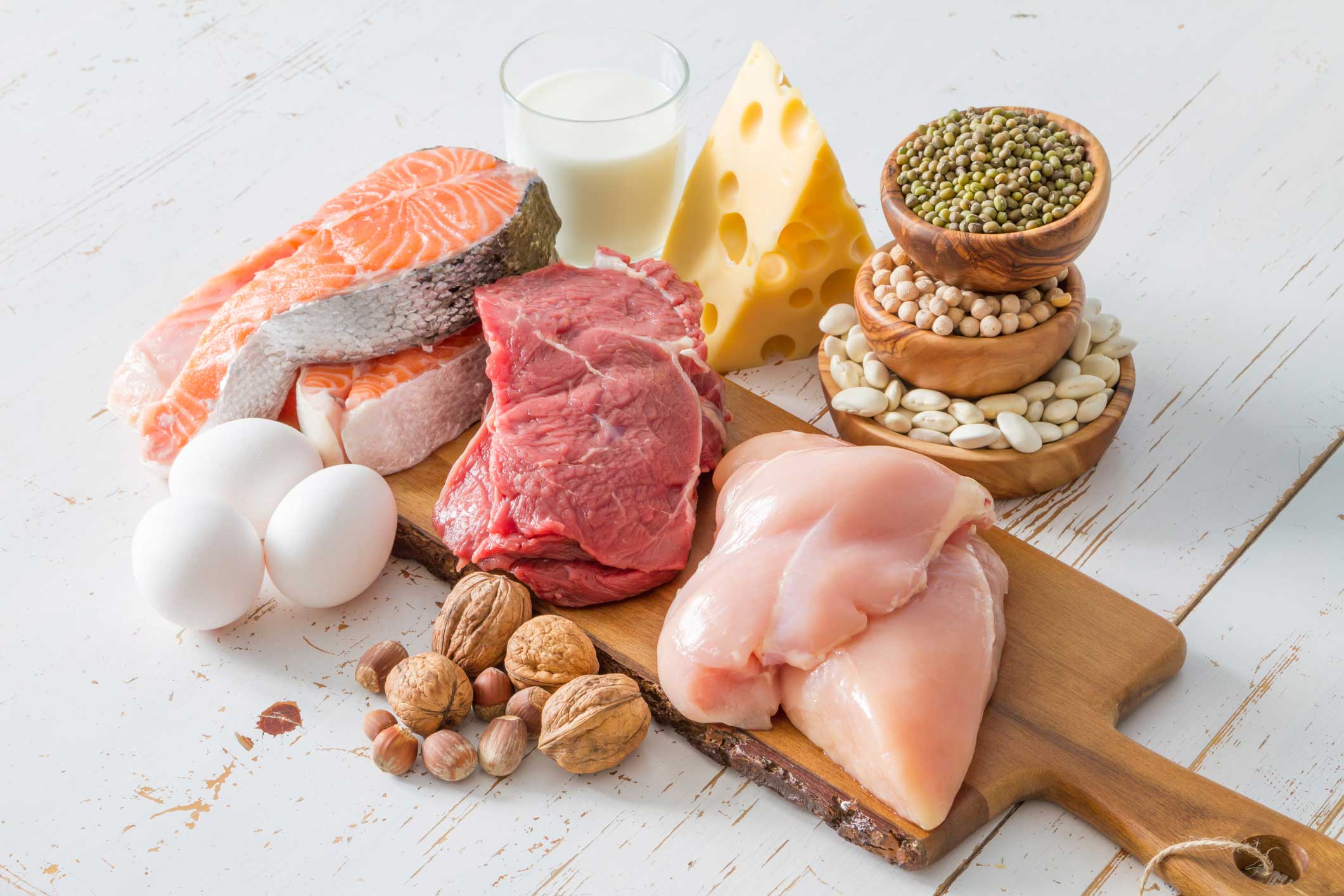Q: My husband is a big protein advocate and says I don’t get enough. There are a lot of things like protein shakes and pre-workout supplements floating around the market. I’d love to know: How much is “enough”?
N.S., Newington
A: Adequate protein intake is associated with improvements in lean body mass, strength, balance and functional health, especially as we age. Protein supplements may help seniors and people who have dietary restrictions — such as vegans — get enough. But for the average person, a balanced diet will provide enough protein.
Americans get about 82 grams of protein per day from diet alone. A sandwich with 3 ounces of chicken and one 8-ounce glass of milk provides 40 grams of protein, which is more than half of the 60 grams a 120-pound recreational athlete needs per day. Use the list below to estimate your protein needs.
- Recreational athletes: 0.5-0.75 grams of protein per pound
- Competitive athletes: 0.6-0.9 grams per pound
- Teenage athletes: 0.8-0.9 grams per pound
- Athletes building muscle mass: 0.7-0.9 grams per pound
If you have determined that you need a protein supplement. which one should you choose and when should you have it? Start by looking for unflavored protein supplements to save money and calories. Then select the supplement with the shortest ingredients list and protein as the first ingredient. You can have protein supplements as a snack or meal replacement, but not immediately before or after a workout.
Before, during, and immediately after a workout your muscles primarily use carbohydrates as fuel. Protein is an important part of recovery after a workout, but research shows that carbohydrates should be consumed with protein to provide the greatest benefit. The ideal carbohydrate to protein ratio is 4-to-1. Most protein supplements have at least 20 grams of protein in one scoop, so you’d need about 80 grams (320 calories) of carbohydrates to get the correct proportion of nutrients — too much for the average home athlete. So keep workout snacks light on protein and carbohydrate-rich. In general, fresh fruit or a granola bar is enough.
Protein is vital for exercise recovery, but it is important not to exceed the recommendations because extra protein can lead to complications, especially if you have kidney problems, pre-diabetes or diabetes. There are about 174 grams of protein in six scoops of protein powder mixed with three 8-ounce glasses of milk. If you add that to the average 82 grams most adults get from diet you will get 256 grams of protein— more than three times the amount that a 150-pound athlete needs!
Getting enough protein from a balanced diet as opposed to supplements is the best choice for your wallet and your health. Supplement companies attract consumers by adding specific amino acids, vitamins, minerals, fiber, enzymes and extracts or concentrates of fruits vegetables and herbs to their products. Buyer beware: Consumer Reports revealed that these supplements may contain trace amounts of heavy metals and contaminants like lead and arsenic. And they could cost almost $2 per scoop! The same amount of protein from milk, chicken, or eggs would cost 60 cents or less.
Whole foods are cheaper than protein supplements, and are also rich in fiber and rainbow of nutrients. Protein-rich eggs, lean meat, fish, low-fat dairy, nuts and seeds are an excellent choice post workout when paired with complex carbohydrates from whole fruit, winter squash, root vegetables and whole grains. Legumes (lentils, beans and peas) and quinoa are rich in complex carbohydrates and protein, so they are a great post-workout eats on their own.

